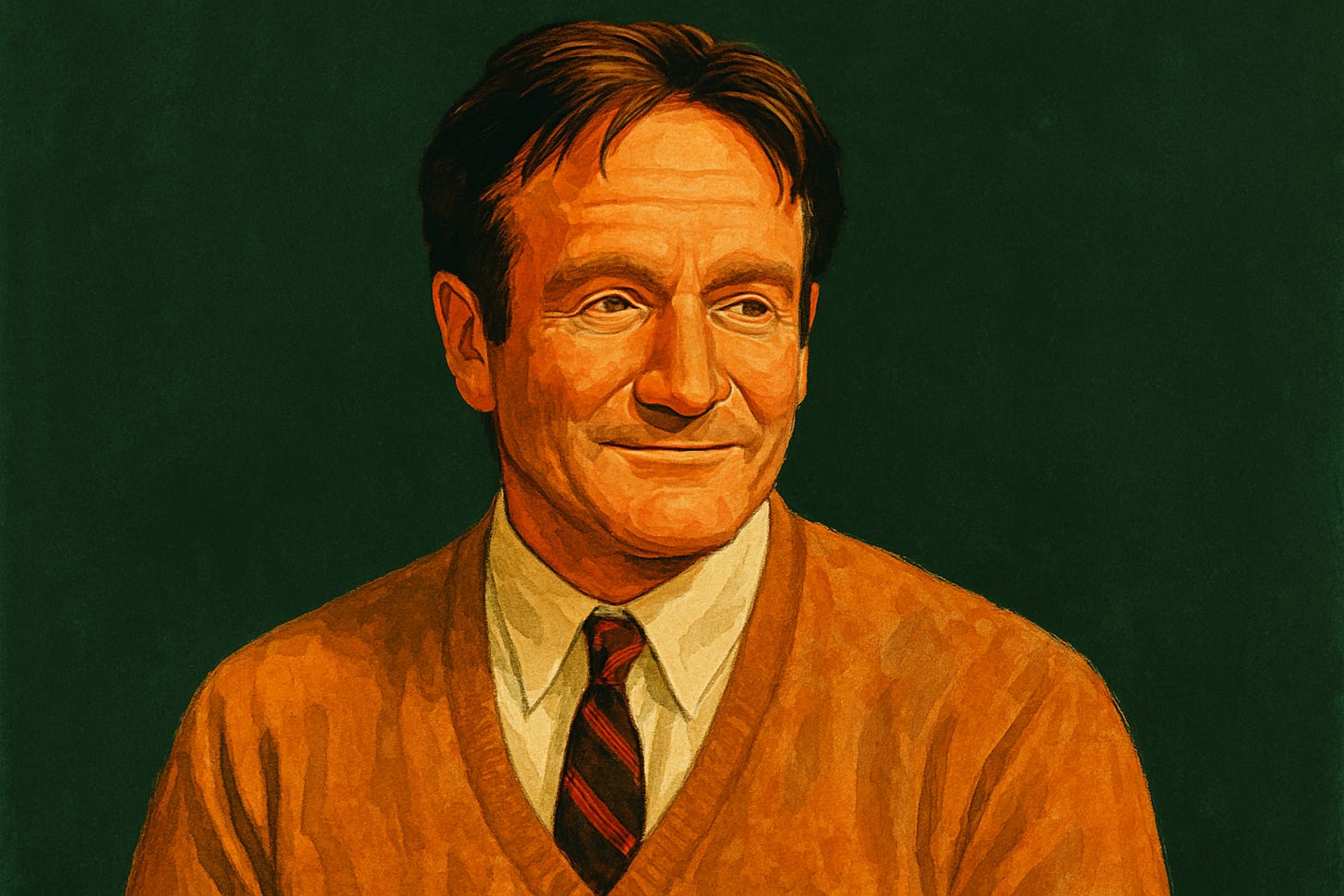slowness is not laziness.
You are becoming at your own pace.
In Dead Poets Society, Robin Williams' character tells his students to "seize the day", but what he doesn't mention is that sometimes the most radical act of seizing the day is refusing to let it slip by in a blur of urgency.
We live in a world that moves at a rapid pace.
Faster deadlines. Faster connections. Faster solutions. You're expected to know the answer, take the leap, keep up, and don't fall behind.
Slowness is not celebrated.
It's mistaken for indecision. For passivity. For fear.
But sometimes, slowness is the bravest thing you can choose.
Carl Jung wrote, "Your vision becomes clear when you look into your heart. Who looks outside, dreams. Who looks inside, awakens."
But awakening requires time, something our hyperconnected world actively discourages.
Neuroscience tells us that our brains are wired for what researchers call the "urgency effect"; we prioritise tasks that feel urgent over those that are actually important.
This cognitive bias keeps us trapped in reactive mode, always responding to the loudest demand for our attention rather than the most meaningful one.
Because slowness asks you to feel.
It asks you to move from depth instead of speed. To take a breath before responding. To let something settle before you chase the next thing.
Dr. Daniel Kahneman's research on "System 1" and "System 2" thinking reveals that our fast, automatic responses (System 1) often lead us astray, while our slower, more deliberate thinking (System 2) produces better decisions.
Yet we have built a culture that celebrates System 1 speed and punishes System 2 reflection.
It's saying, I will not be rushed out of my own life.
Viktor Frankl observed, "Between stimulus and response, there is a space. In that space is our power to choose our response. In our response lies our growth and our freedom."
Slowness is the practice of expanding that space.
Psychologist Dr. Kristin Neff's research on self-compassion shows that when we slow down and treat ourselves with the same kindness we'd offer a good friend, we actually become more motivated and resilient, not less. The myth that we need harsh self-criticism and a relentless pace to achieve our goals has been thoroughly debunked.
It's the courage to choose quality over quantity. Substance over spectacle. Healing over hustle.
When you move slowly, you notice things more clearly. The way your body holds tension. The subtle truth underneath your first impulse. The quiet voice of your intuition that's so easy to miss when you're racing through the day.
Dr. Dan Siegel's concept of "mindsight"; the ability to see the internal world of self and others, requires what he calls "time-in."
This is different from "time-out." It's the practice of turning inward with curiosity and compassion, something that's impossible at high speeds.
Research from Harvard's Dr. Ellen Langer on mindfulness shows that when we slow down enough to notice novelty in our environment, such as the way light falls differently today or the slight change in a friend's voice, we literally become more alive.
Our brains create new neural pathways. We become more creative, more empathetic, more resilient.
Slow doesn't mean stuck. Slow means deliberate.
When we're constantly "on," continually moving, constantly responding, we rob ourselves of the very neural processes that help us understand who we are and what matters to us.
As psychiatrist Dr. Dan Siegel explains, "The mind uses the brain to create itself." But that creation requires spaciousness, reflection, and yes, slowness.
It means you're listening.
To your body. To your needs. To what life is asking of you right now.
The Roman philosopher Seneca wrote, "It is not that we have a short time to live, but that we waste a lot of it."
Modern psychology has proven him right. When we move too fast, we experience what researchers call "time famine", the feeling that we never have enough time, even when objectively we do.
And that's a wisdom no algorithm can teach.
"Nature does not hurry, yet everything is accomplished," said Lao Tzu.
Trees don't apologise for taking decades to reach their full height. Rivers don't rush to get to the ocean. Seasons change at their own pace, regardless of our human urgency.
As poet Adrienne Rich wrote, "There must be those among whom we can sit down and weep and still be counted as warriors."
Sometimes the most courageous thing you can do is sit down. Slow down. Feel what needs to be felt.
And that pace is enough.
In a world that profits from your speed, your anxiety, your constant consumption and production, choosing slowness is a radical act of self-preservation.
It's a declaration that you are more than your productivity. That your velocity doesn't measure your worth.
You are not a machine. You are a human being, worthy of the time it takes to become who you're meant to be.
Move slowly. The world can wait.
Thank you for reading, your time and attention mean everything. This essay is free, but if you found value in it, consider buying me a coffee to support my work. For more thoughts and short notes, find me on Instagram.



